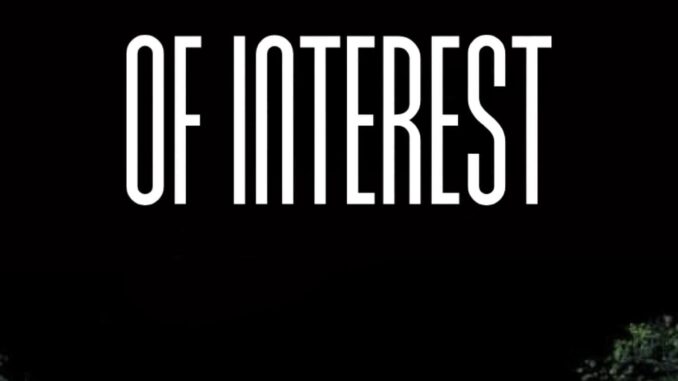

Directed by Jonathan Glazer
This is a viscerally powerful production which takes a very different view of the Holocaust from other films. Filmed in a documentary style, it follows the daily lives of the Auschwitz camp commander, Rudolph Hoss, his wife Hedwig and their five children who lived in a modern house right next to the camp wall from 1940 to 1945. The house has a beautiful garden and swimming pool, completely in contradiction with what we know lies over the wall. The initial scenes show what appears to be an idyllic family day swimming in a lake surrounded by hills and trees. When the family returns to the house, this bucolic existence continues, but the viewers are made aware of a very different life through sound – that of the camp. By day there is the sound of the trains arriving, shots being fired, dogs barking and people screaming. Day and night, the chimney is belching ash and there is the industrial rumble of the crematorium. As the film goes on, this nauseating background soundscape continues unabated, quietly subverting the images of ordinary family life, making the viewers witnesses to how this family chooses to blot out and accept the horrors close by.
The acting is extraordinary – especially by Christian Friedel who plays Rudolph Hoss and Sandra Huller who plays Hedwig Hoss. They hauntingly portray this loveless couple as ambitious, deluded, and banal. There are so any powerful scenes, but a few stand out. Rudolph Hoss can be seen speaking about “improved production” (i.e. death rates) in one sentence then complain about the flowers in his garden. Hedwig is shown trying on fur coats taken from prisoners who have been murdered, and casually mentioning to a prisoner servant that she could have her ashes scattered in the garden if she does not do her job well enough. At night, their oldest son is seen examining something by torchlight on his bunk bed. When asked by his younger brother what he’s looking at, he doesn’t reply but the camera zooms in to show human teeth containing metal fillings. The only kind human being depicted is a girl who steals apples from the Hoss’s garden at night and hides them near tools for the working prisoners. These sequences are shot with a night cameras which makes this act even more shockingly brave and surreal. There is no violence depicted on the screen – it is only hinted at through sound, and the effect is all the more powerful for being implied. The inner contradiction of the Commandant is shockingly revealed by his sleeping with one of the Jewish prisoners (in reality – she became pregnant and was forced to have an abortion) whilst he constantly takes extraordinary steps to dehumanise the prisoners by referring to them as simply numbers.
Hoss’s conscience is shown to finally come to the surface after he agrees to oversee the murder of 700,000 Hungarian Jews at the camp.
My daughter and I could not speak for a long time after the film ended. It is without doubt a masterpiece – essential viewing for anyone who wants to understand more about how it is possible for ordinary people to become “systematised” to behave in such an unconsciously cruel and murderous way. And it is also a warning as to how ignorance leads to factionalisation, hatred and repression. This is unforgettably brilliant film-making.
As a postscript I read about what happened to Hoss after the war. He was discovered in hiding and tried for war crimes before becoming the last person to be executed at Auschwitz on the 16th April 1947.
Four days before he was due to be executed, Hoss issued the following statement to the Polish State Prosecutor:-
My conscience compels me to make the following declaration. In the solitude of my prison cell, I have come to the bitter recognition that I have sinned gravely against humanity. As Commandant of Auschwitz, I was responsible for carrying out part of the cruel plans of the ‘Third Reich’ for human destruction. In so doing I have inflicted terrible wounds on humanity. I caused unspeakable suffering for the Polish people in particular. I am to pay for this with my life. May the Lord God forgive one day what I have done. I ask the Polish people for forgiveness. In Polish prisons I experienced for the first time what human kindness is. Despite all that has happened I have experienced humane treatment which I could never have expected, and which has deeply shamed me. May the facts which are now coming out about the horrible crimes against humanity make the repetition of such cruel acts impossible for all time.